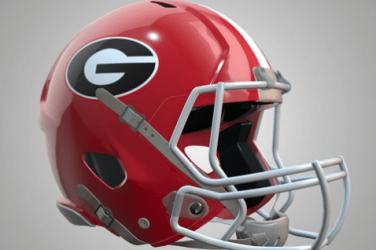Athens, GA–Concussion prevention is gaining a lot of attention from UGA Athletics. The NFL is facing many lawsuits and the recent research found that Junior Seau’s concussions were a factor in his suicide. The UGA training and medical staff are constantly re-evaluating their concussion policy.
Hit. After hit. After hit. Sometimes it just hurts to watch. But often the hits that cause concussions aren’t the hardest hits of the game. For the UGA football team this year, six out of the eight concussions happened in practice.
UGA is confident in their policy.
Ron Courson, UGA’s Director of Sports Medicine explains some of the policy. “[The players] are pulled from activity immediately, and do not return until–one: they are symptom free, two: they are cleared by a physician, and three: all of their diagnostic tests are normal,” he says.
UGA trainers and physicians feel that they are in a different situation than the NFL.
Dr. Fred Reifsteck, the head Team Physician at UGA, says, “On of the advantages we have, is we obviously have a player much earlier in their career than an end-of-career NFL veteran.”
Regardless of how long a player has been in the game, all coaches are concerned. A Georgia High School Football Coach, Mike Massey, even created helmet technology that notifies the player if the hit has an impact that could result in a concussion.
The Director of Sports Medicine says there is a misconception about the purpose of helmets. Courson says, “Helmets are not designed to prevent concussions. Helmets are really designed for skull fractures.”
Football players are not the only athletes affected–gymnasts, equestrians, and cheerleaders are also athletes at UGA that add to the concussion count.
Chase Castellanos, a cheerleader at UGA, recalls a time when he got a concussion during practice. While practicing “basket tosses”, he says, “My group went to go throw theirs–and the girl that we were throwing–her elbow came right back and hit me in the face.”
UGA’s policy requires the player to stop playing or practicing immediately. They are assessed and if they have a concussion they have to put their mind and body at rest.
The doctors follow their symptoms and assess their with balance on the Neuro-Com Machine. Athletes also take cognitive tests that check their memory. Their scores after the concussion are compared to their baseline data collected before the concussion. Athletes are not allowed to return to practice until their symptoms have subsided and they have passed the tests that check their reaction time, balance, and memory.







Show Comments (2)
Priest Rasch
Nice post. I learn something totally new and challenging on blogs I stumbleupon on a daily basis. It will always be exciting to read content from other authors and use a little something from other websites.
About Onno Vocks
Everything is very open with a precise explanation of the issues. It was really informative. Your website is very useful. Thank you for sharing!
Comments are closed.